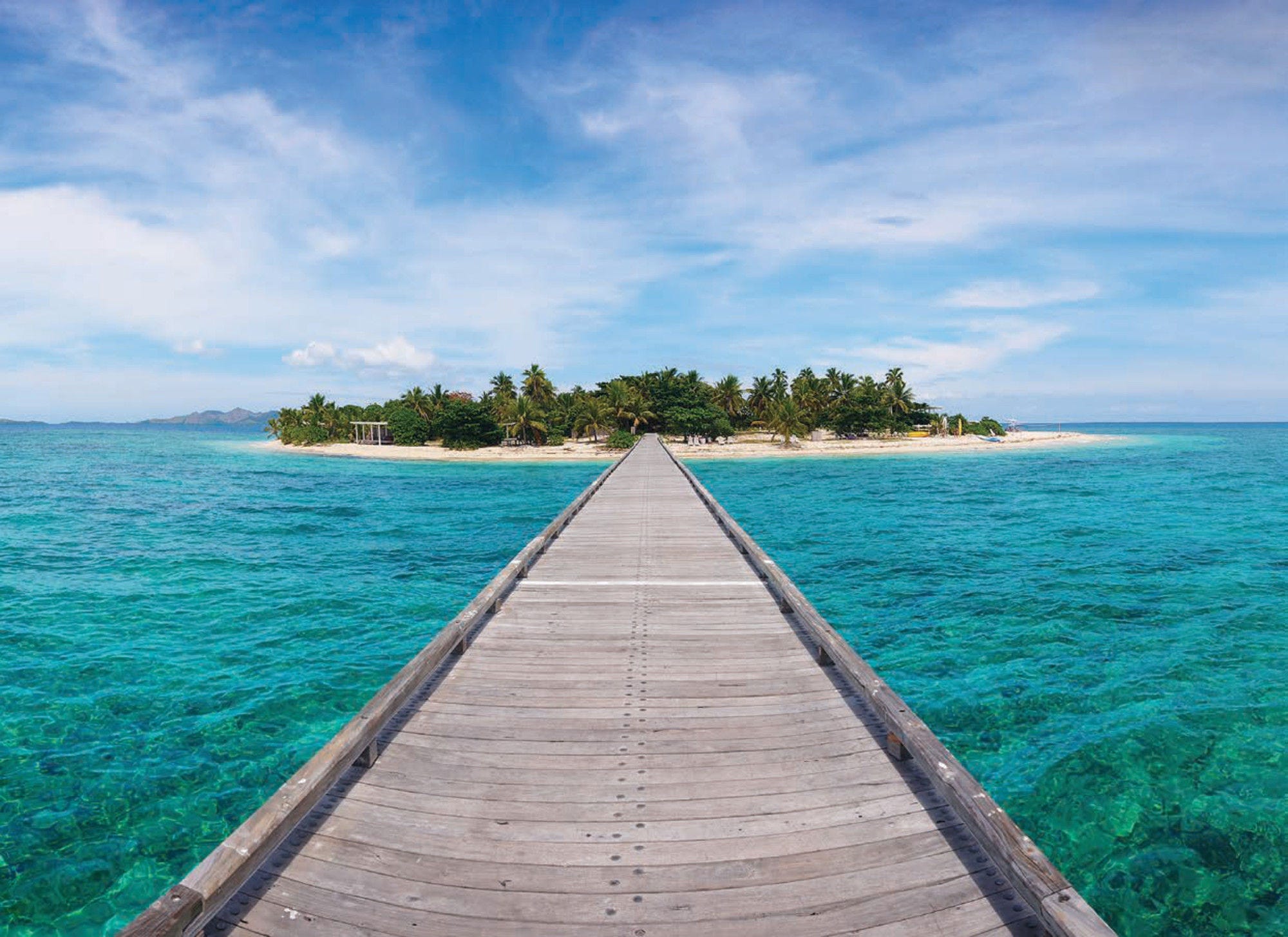The global COVID-19 pandemic has severely affected Fiji, hitting at backbone economic sectors, such as international tourism and export fisheries. It has also brought to the fore the need to embark on a more sustainable model of development. This report examines Fiji’s economic and sustainability trends, as well as the governance and financing of its ocean economy before and during the COVID-19 crisis. It provides an initial mapping of promising initiatives and funding instruments that can be developed and scaled up to foster a sustainable blue recovery, focusing on four main areas: sustainable fisheries, sustainable tourism, green shipping and marine conservation.
Towards a Blue Recovery in Fiji

Abstract
Executive Summary
Economic and sustainability trends
The bulk of Fiji’s economic activity depends on the ocean. Tourism, fisheries and maritime transportation are Fiji’s largest ocean economy sectors. Tourism alone accounted for 38.9% of Fiji’s gross domestic product (GDP) and 35.5% of employment prior to COVID-19. More than 90% of tourist attractions are maritime- or coastal-based. The tourism sector supports numerous other industries, such as transport and agriculture, although linkages could be further strengthened. Moreover, as an archipelago, Fiji relies heavily on maritime transportation, ports and other coastal infrastructure to trade goods and to ensure inter-island mobility of Fijians and tourists. Other critical sectors of Fiji’s ocean economy are fisheries and aquaculture. The fisheries sector is Fiji’s third largest export earner and is responsible for the livelihoods of a significant share of Fiji’s population.
Unsustainable use of natural resources and climate change are threatening economic and social prosperity. Fiji is located in the tropical cyclone belt, which exposes it to tropical storms, rising sea levels, floods and landslides. Every year, cyclones and floods cause substantial damages and estimates suggest that Fiji’s annual losses due to extreme weather events could reach 6.5% of GDP by 2050. Other climate change impacts on Fiji’s coastal and marine ecosystems include changing weather patterns, coral bleaching, and changing fish migratory patterns. Together with overfishing, these challenge the prospects of the country’s fisheries sector. Coastal erosion and sea-level rise due to climate change are leading to permanent community relocations. Since 2014, seven communities have been fully or partially relocated due to climate change impacts.
The COVID-19 crisis affected Fiji’s economy particularly hard, stressing the need for a sustainable diversification of the economy and more sustainable use of its resources. Heavy dependence on tourism and low economic diversification made the 2020 economic contraction the largest in Fiji’s modern history. GDP fell by 15.7% in 2020 and the debt to GDP ratio reached 80% in 2019, up from 43.5% in 2017. Job losses and reduced hours affected at least one-third of Fiji’s labour force, more in the tourism sector. Since hotels and resorts represent an important share of the local demand for fish, the halt in tourism significantly affected employment in aquaculture, fisheries and transportation. Fiji’s exports of fresh fish were also deeply affected by the rise in freight costs and the reduction in airfreight options. Lockdowns in major export markets also depressed international demand. In addition, three tropical cyclones hit the country; one was the strongest ever recorded in the Pacific.
Financing trends
Despite facing severe financing challenges common to other small island nations, pre-COVID Fiji managed to improve its domestic revenues and develop innovative financing instruments for sustainable green and blue investments. Fiji’s domestic revenues (tax and non-tax) more than doubled between 2008 and 2019, from FDJ 3 044 billion to FDJ 1 245 billion. Fiji also developed a suite of innovative fiscal instruments to finance climate and ocean action. These include the Environment and Climate Adaptation Levy (ECAL) as well as Fiji’s first sovereign green bond. With the development of its first sovereign blue bond, the country plays a leading role in innovation for sustainable investment.
Official development assistance (ODA) has been an important part of Fiji’s financing mix, but flows in support of the ocean economy remain small and volatile. ODA accounted for 19% of external financial flows in 2015-19. However, in 2019, the ocean economy received only 2.65% of total ODA (USD 4.3 million), below the 6.5% average in Small Island Developing States (SIDS). Unlike for many other countries, most of the ODA to Fiji’s ocean economy incorporates sustainability concerns (94% in 2017-19). It concentrates on sustainable fisheries. There is significant scope for providers of development co-operation to enhance their support by: (i) directly funding sustainable investments; (ii) de-risking and crowding in additional sources of funding, including through capacity building and credit enhancement for innovative financial products; and (iii) supporting the integration of sustainability criteria and standards in traditional financial services and investments, in financial products (e.g. stocks and bonds), as well as in credit products (e.g. loans or bonds).
Setting sail for sustainability: Opportunities and tools for fostering a blue recovery
As part of stage one of the Blue Recovery Hub of Fiji, this report provides an initial mapping of initiatives and actions to be explored, developed and scaled up. These initiatives focus on four areas with potential to generate benefits across the broader economy, and drive a sustainable recovery: sustainable fisheries, sustainable tourism, green shipping and marine conservation. It also highlights examples of innovative financing mechanisms that could advance these ambitions.
Within sustainable fisheries, aquaculture can play a key role in ensuring food security, as seen in many Southeast Asian countries, but sustainability needs to be put at the centre. Further opportunities can be explored, especially on seaweed farming and pearl production.
Sustainable tourism can help Fiji create greater value for its people and for the environment. Following the COVID-19 outbreak, more expensive and scarce food supply made many hotel chains turn to local production. Encouraging and scaling up such initiatives can underpin economic recovery. Linking fiscal incentives for hotel renovations under COVID-19 to enhanced energy efficiency and sustainability standards can boost employment and productivity, and move Fiji closer to achieving its climate goals.
Moving towards a greener shipping sector offers intrinsic benefits for the environment. It is also cost effective, since fuels imports weigh heavily on Fiji’s import bill, limiting inter-island connectivity and the associated economic opportunities. Investing in alternative fuels, fuel efficiency measures and clean technologies can reduce dependency on fossil fuels and make Fiji less vulnerable to external shocks. A number of innovative low-carbon and fuel-saving options currently tested in Fiji and in the region could be further developed and scaled up.
Centralised funding models for marine protection could be adapted to fit Fiji’s demands, allowing the country to meet its needs for near-shore, small-scale protected areas management.
Related publications
-
 Working paper25 April 2024
Working paper25 April 2024 -
 Policy paper11 October 2022
Policy paper11 October 2022 -
 26 January 2021
26 January 2021




